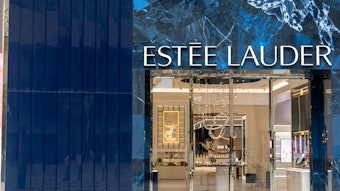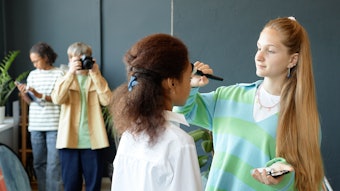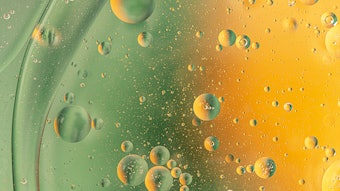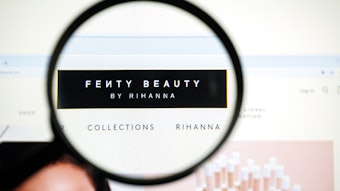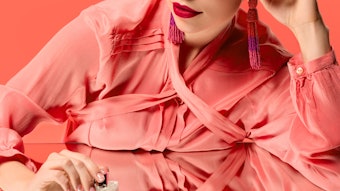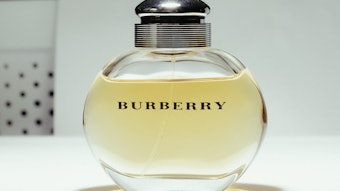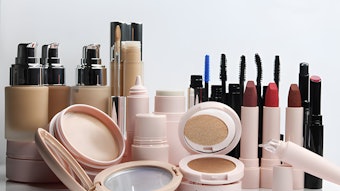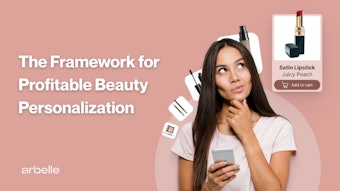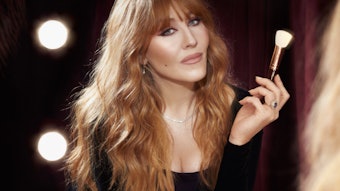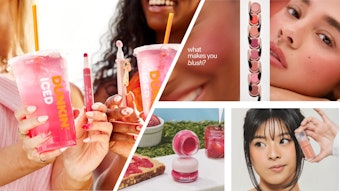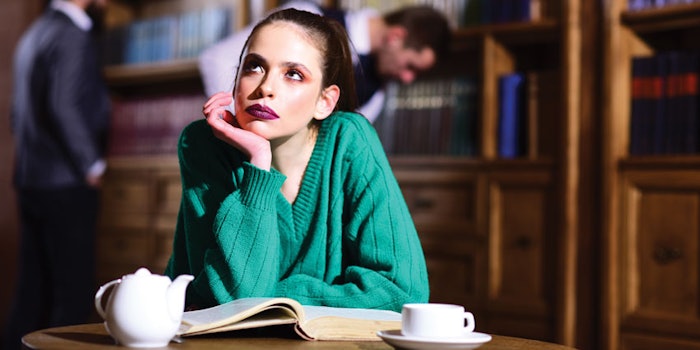
New research shows makeup has the potential to enhance consumers’ lives inside and out.
Women spend a large amount of their available income to purchase cosmetics, particularly makeup. Intriguingly, while consumption on most consumer products during the Great Recession of 2007-2009 predictably declined, cosmetics consumption continued to increase. This phenomenon, which has been named “the lipstick effect” by journalists, is still not completely understood. 1 However, a body of existing and emerging research points to a range of emotional drivers.
Makeup’s Documented Impacts
Authors have shown that women wear makeup to cope with anxiety about facial appearance, to conform with social norms, to alleviate their self-consciousness, and to appear more sociable and assertive to others. 2-4
The perception that people have of women who wear makeup is equally intriguing. Authors have highlighted that people perceived women who wear makeup as being healthier and earning more money, as displaying greater competence, likability and trustworthiness, as well as appearing more prestigious and dominant. 5-7 Interestingly, though perhaps not surprisingly, men tip higher amounts and with greater frequency for waitresses who wear makeup. 8
A Self-esteem Booster?
As part of a Masters’ project, a student has tried to better understand this phenomenon by testing a sample of 270 women from 18 different countries. 9 The results showed that women claimed to buy makeup to feel happier with their overall personal life, regardless of their romantic relationship, as well as searching to feel more confident in their professional lives. The author suggested that women used makeup as a form of compensation strategy to increase their levels of self-esteem by boosting their physical attractiveness, and this consequently makes them feel better during stressful times.
Mixed Signals on Benefits
Research has underlined a positive relationship between physical attractiveness and subjective well-being, i.e. the people who are perceived as physically attractive seem to feel happier. 10-13 However, these articles underlined a small correlation between these two variables, showing that this relationship is very limited.
Conversely, another very interesting research project highlighted that participants with lower self-esteem were likely to be wearing more makeup than those with higher self-esteem and that there is therefore no correlation between social self-esteem and makeup usage. 14 However, this research recruited only 32 participants between 18 and 22 years old. A broader and larger sample of participants would be needed to draw more definitive conclusions.
The relationship between the makeup usage and well-being would still need further research and investigation to be completely understood.
Beauty Makes You Feel Smarter
While we still don’t definitively know whether makeup makes women feel happier, research has shown an intriguing fact: makeup makes women feel smarter. Palumbo et al. have published an amazing piece of work recruiting 186 female students. 15
The study included two phases. First, all participants were required to come to a lab without wearing any makeup and were required to rate their mood, how beautiful they felt and to read a general psychology textbook. Next, participants were divided into three groups and required to carry out a 15-minute task.
The first group, the “music group,” was required to listen to classical music, which has been shown to induce positive moods. The second group, the “coloring group,” was asked to color a black-and-white drawing of a face as if they were using cosmetics. The third group, the “makeup group,” were required to put on makeup as they usually do before going out.
Afterward, all participants were invited to rate their mood, chart how beautiful they felt and answer a short multiple-choice test about the general psychology textbook they’d read in the first phase of the experiment. Guess which group showed a higher beauty score, higher positive mood and scored higher in the reading test? The “makeup group.”
Marketers looking to the benefits of makeup products on consumers’ lives should therefore consider the upsides for beauty and brains.
References
- Motta de Nadai, M. I. (2015). The lipstick effect and the self-enhancement motives. Economies and finances.
- Korichi, R., and Pelle-de-Queral, D. (2008). Why women use makeup: Implication of psychological. Journal of cosmetic science, 59, 127-137.
- Miller, L. C., & Cox, C. L. (1982). For appearances’ sake: Public self-consciousness and makeup use. Personality and Social Psychology Bulletin, 8(4), 748-751.
- Robertson, J., Fieldman, G., & Hussey, T. (2008). Who wears Cosmetics? Individual Differences and their Relationship with Cosmetic Usage. Individual Differences Research, 6(1).
- Nash, R., Fieldman, G., Hussey, T., Lévêque, J. L., & Pineau, P. (2006). Cosmetics: They influence more than Caucasian female facial attractiveness. Journal of Applied Social Psychology, 36(2), 493-504.
- Etcoff, N. L., Stock, S., Haley, L. E., Vickery, S. A., & House, D. M. (2011). Cosmetics as a feature of the extended human phenotype: Modulation of the perception of biologically important facial signals. PloS one, 6(10), e25656.
- Mileva, V. R., Jones, A. L., Russell, R., & Little, A. C. (2016). Sex differences in the perceived dominance and prestige of women with and without cosmetics. Perception, 45(10), 1166-1183.
- Gueguen, N., & Jacob, C. (2011). Enhanced female attractiveness with use of cosmetics and male tipping behavior in restaurants. Journal of cosmetic science, 62(3), 283.
- Hill, S. E., Rodeheffer, C. D., Griskevicius, V., Durante, K., & White, A. E. (2012). Boosting beauty in an economic decline: Mating, spending, and the lipstick effect. Journal of personality and social psychology, 103(2), 275.
- Noles, S. W., Cash, T. F., & Winstead, B. A. (1985). Body image, physical attractiveness, and depression. Journal of consulting and clinical psychology, 53(1), 88.
- Campbell, A., Converse, P. E., & Rodgers, W. L. (1976). The quality of American life: Perceptions, evaluations, and satisfactions. Russell Sage Foundation.
- Feingold, A. (1992). Good-looking people are not what we think. Psychological bulletin, 111(2), 304.
- Diener, E., Wolsic, B., & Fujita, F. (1995). Physical attractiveness and subjective well-being. Journal of Personality and Social Psychology, 69(1), 120.
- Brinegar, K., & Weddle, E. (2014). The Correlation Between Makeup Usage and Self-Esteem. The Hanover College, Hanover, Indiana, United States of America.
- Palumbo, R., Fairfield, B., Mammarella, N., & Di Domenico, A. (2017). Does make-up make you feel smarter? The “lipstick effect” extended to academic achievement. Cogent Psychology, 4(1), 1327635.

